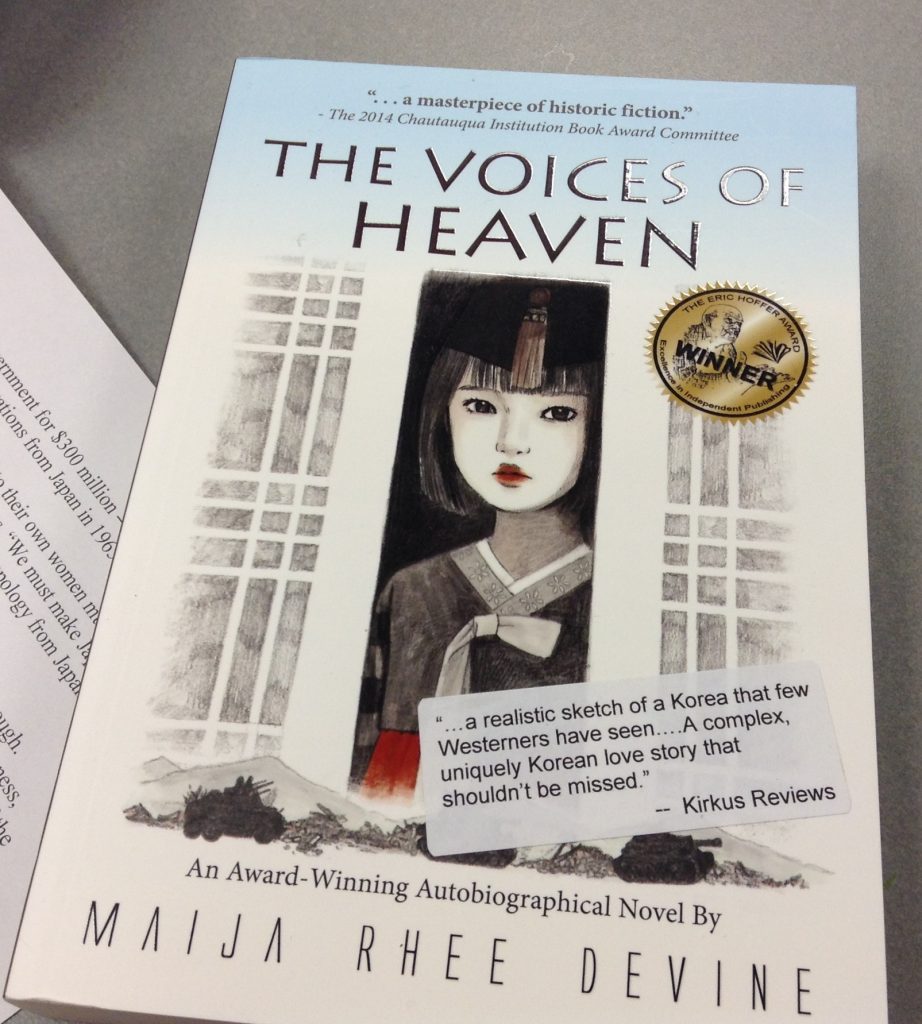On Wednesday 5/4/16 Maija Rhee Devine spoke on the topic of Comfort Women in World War II. Her expertise and experience focused on Korean Comfort Women – the largest group of impressed sex slaves by the Japanese Imperial Army, however she did note that comfort women stations were found throughout the Asian theater. 
Maija was born in Korea and lived through the Korean Conflict, but was not a comfort woman herself. She did have pictures and stories of her interviews with these brave few survivors, most of whom are in their 90’s now. Maija has been traveling back and forth to Korea interviewing these women for some time and roomed with a woman who recently spoke to congress (or was it the house?) and Maija acted as interpreter. Maija has published a novel of historical fiction based on her life titled Voices in Heaven, the story of a family where the woman had a daughter rather than a son, leaving the daughter feeling unwanted. The mother then had to make welcome a second woman whose purose was to provide a male heir – since the belief was that the woman was to blame for failing to produce a boy. THe book has won awards and sounds emotionally grueling. I hope our library buys it.
Maijas next book will focus on comfort women. This topic has been a cause I’ve championed in my Comp II classes which have a component which focuses on China. The story is truly horrible in ways we struggle to imagine. A good primer is the graphic novel Tattoo: the Story of a Comfort Woman. I first learned of Comfort Women when I lived in Taiwan, where there were at least 5 different comfort stations, or military sex slave brothels to be more accurate. I saw these women on Taiwanese TV, and I may have seen one in person. She would have been the right age, and it was near an “old man park” where aging prostitutes congregate. I noticed tattoos on her arm – numbers. I saw a woman once about the age in the Philippines once too with numbers tattooed on her arms. I also worked with an American born Chinese woman at KU who told me of her grandmother who never spoke of the war – but was haunted by it – and she had numbers tattooed on her arm. She wondered if she could have been a comfort woman. I have assumed for years that Tattooing comfort women was a standard practice – the way Jews were tattooed with numbers by the Nazis, or the way modern sex slaves are tattooed. This research question has haunted me for years.